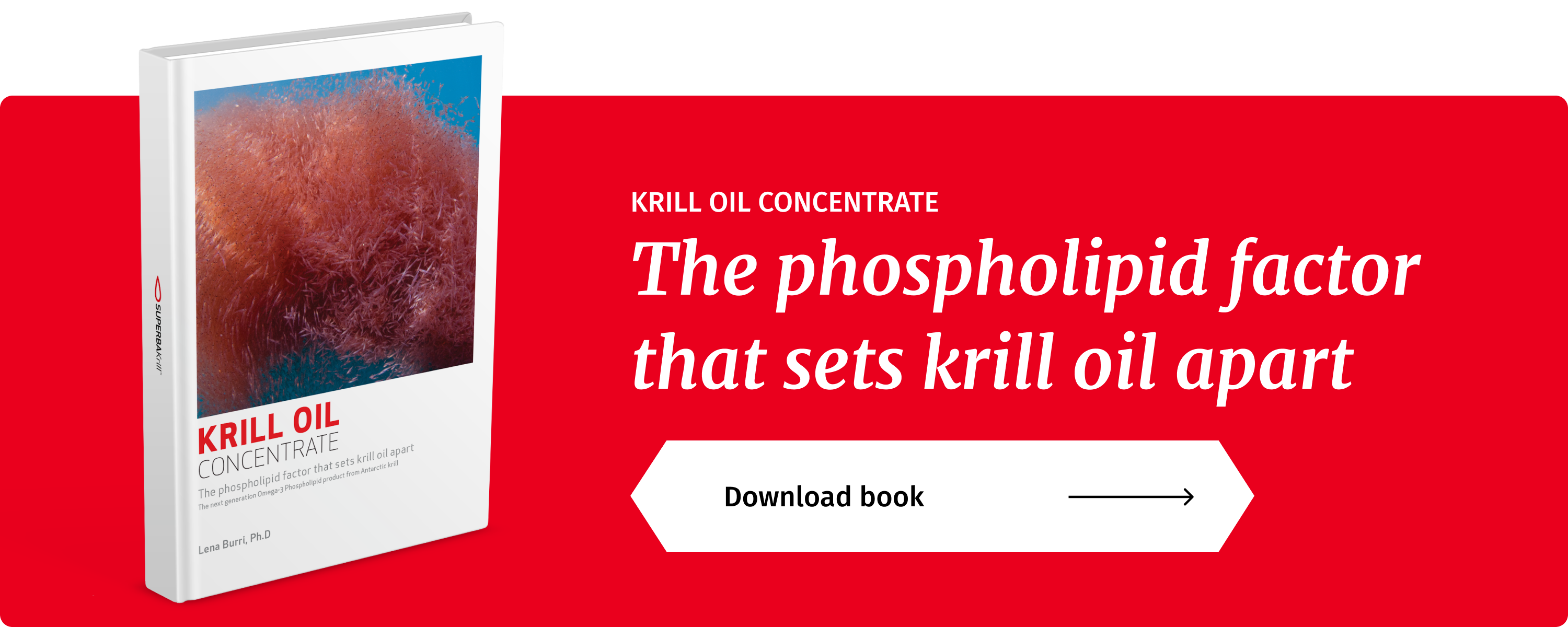Omega-3s are one of the most popular nutrients you find in dietary supplements, and for good reasons! They are among some of the most important nutrients in our diet to support our long-term health, but what are omega-3 fatty acids? What do they do? And how do you make sure that you’re getting the right type of omega-3s?
This article gives you an overview of just that.
What are omega-3 fatty acids?
Omega-3s are a group of nutrients called fatty acids, which play a number of important roles in our body and support a variety of functions. Our body cannot make enough of these nutrients internally which means that we must get omega-3s from the food we eat.
You can find omega-3s in different foods such as fatty fish (like salmon, fresh tuna, mackerel etc), the little crustecean krill and some plants, such as flax seed, chia seeds and walnuts.
For people who don’t eat much of these foods, an omega-3 supplement is an effective way to ensure you’re getting enough from your diet.
What are the different types of omega-3s?
The three most important types of omega-3 are ALA, EPA and DHA.
ALA (alpha-linoleic acid) is the most abundant type of omega-3 in the diet and the majority of people get enough of this omega-3. Your body uses ALA for several processes, including for energy. Your body can also make EPA and DHA (see below) from ALA, but the process is highly inefficient with less than 10% being converted to EPA & DHA.
EPA & DHA (Eicosapentaenoic and Docosahexaenoic acid) can only be obtained in significant amounts from marine sources, like eating fatty fish. That’s why most international health authorities, such as the World Health Organisation and the European Food Safety Authority, recommended getting 250 mg of EPA & DHA a day, which is equal to about 2 servings of fatty fish per week. Unfortunately, most people do not get enough EPA & DHA omega-3s, since the body’s conversion rate from ALA to EPA & DHA is so low, and fatty fish tends not to be widely consumed on a regular basis.
Read how to get more omega-3s in your diet
EPA and DHA omega-3s are key structural components of all our body’s cells in the brain and eyes, and help keep our vital organs healthy like the heart, liver, brain and eyes.
Because of their important functions and limited supply from the diet, EPA and DHA are considered some of the most important omega-3 fatty acids. It is for that reason that much of the research surrounding omega-3 health benefits focuses on EPA & DHA.
Should I take an omega-3 supplement?
An estimated 97% of the world population have insufficient levels of omega-3 (EPA & DHA), with some of the lowest levels in North America, Central Europe and many parts of Asia, indicating a lack of dietary intake.
There can be many reasons that we don’t get enough omega-3s from our diet, such as accessibility to fresh fish, religious reasons, family preferences, lifestyles choices like vegan and vegetarianism, or perhaps you just don’t eat enough fish on a regular basis.
In these cases, a dietary supplement containing the right omega-3 fatty acids (EPA & DHA) would be a good choice.
There are several different types of omega-3 supplements available. The best way to get EPA & DHA omega-3 is from marine sources, like krill oil or fish oil. Fish oil is a widely available and common way to get omega-3s.
Krill oil is unique in that it contains phospholipid-bound omega-3s which are delivered to the body in the same form as our body’s cells, facilitating the uptake of the omega-3 into our cell membranes.
Watch krill oil phospholipid omega-3s in action!
For vegans and vegetarians, the best option to ensure you get the EPA & DHA form of omega-3 is from algae oil.
What are the functions of omega-3 fatty acids?
Omega-3s have a variety of different functions in the body, which tend to occur mostly at the cell level. They are first and foremost a structural component of our cell membranes and help the membrane to remain flexible so our body’s cells can do their job efficiently.
In addition, omega-3s produce signalling molecules called Eicosanoids to help cells communicate. The eicosanoids that are produced from omega-3s have largely anti-inflammatory functions, in comparison to omega-6s which tend towards being pro-inflammatory. These signalling molecules have a wide range of functions in the body’s cardiovascular, lung, immune and endocrine systems.
In fact, the largest concentration of DHA is found in the eye. EPA & DHA omega-3s are especially important for brain and eye health and play a vital role in development and long-term maintenance of these body systems.
What are the health benefits of omega-3 supplements?
Due to the wide-ranging functions in the body, omega-3s can help support out bodies in more ways than one. Supporting a healthy heart is one of the number one reasons people choose to ensure they are getting enough omega-3s (EPA & DHA), due to its helpful effects on the heart and the heart system.
Krill oil contains both omega-3 and choline for a healthy heart.
Omega-3s are one of the most researched nutrients in the world. Studies have demonstrated beneficial effects for the eyes, brain and liver among other organs. Indeed, omega-3s can even play a role in helping support healthy skin function. The layers of our skin are an important barrier to the outside world, and a healthy level of omega-3 fatty acids in the skin cells help to keep that barrier working properly.
Krill oil is a rich source of omega-3 (EPA & DHA) in the phospholipid form, the same form found in our cell membranes. This phospholipids molecule also contains choline, another important nutrient to support our health. Check out the health benefits of krill oil here.

